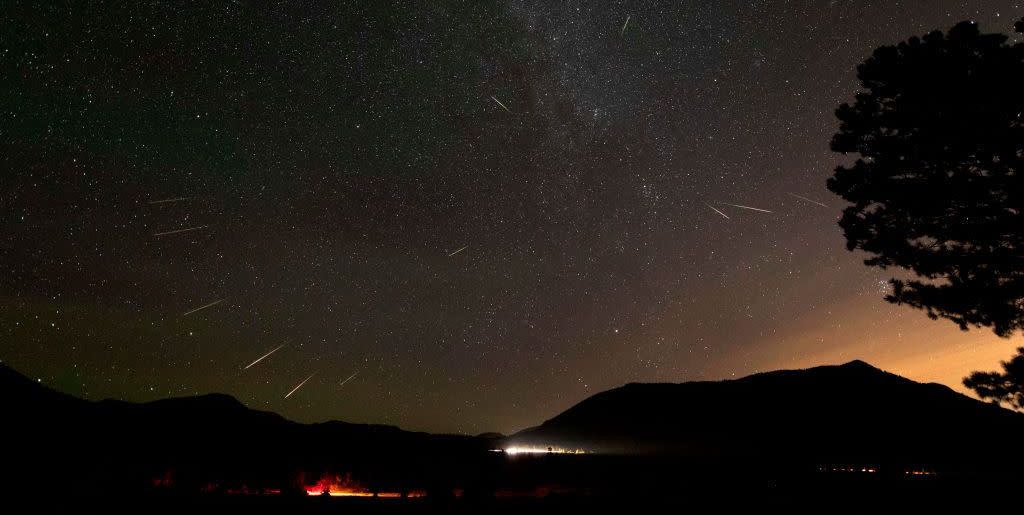How To Watch the Perseids Meteor Shower Tonight

The Perseid meteor shower will be visible tonight in certain areas of the northern hemisphere.
NASA will livestream the event beginning at 9 p.m. for those who cannot view the shower due to poor visibility.
Tonight, you might be able to catch the spectacle that is the Perseid meteor shower depending on where you are. AccuWeather reports that during peak hours, spectators may be treated to close to 100 meteors an hour in addition to the "glittering trail" and bright colors they leave behind.
The Perseid shower is actually debris, leftover from the Swift-Tuttle comet that comes back into Earth's orbit every 133 years. Swift-Tuttle features a 16-mile wide nucleus and is the largest object in our solar system that passes in close proximity to Earth on a cyclical basis.
How To Watch
The best time to view the showers is around 2 a.m. and again at dawn, local time. Typically, the northern hemisphere is the best place to view the Perseids with prime visibility available to those in the west, fair visibility in the Pacific northwest, midwest, portions of the south including Miami, Memphis, and portions of the north including Boston, New York City, and Washington, D.C.
Poor viewing conditions will be prevalent throughout western and southern Canada, upstate New York and portions of northeastern U.S.
Most of the western U.S. will be treated to unobstructed views as there are no cloudy skies in the forecast for that region. However, light pollution in highly populated areas like Los Angeles will make stargazing difficult, so plan accordingly.
Other factors including the brightness of the moon and cloudy skies will affect visibility. Luckily, this evening should bring an "early-setting crescent moon," per NASA, so moonlight shouldn't be an issue.
If light pollution, a bright moon, or clouds mess up your chance to check out the Perseids, you can watch NASA's livestream, out of Huntsville, AL, set to begin at 9 p.m. The shower will continue into early Tuesday morning.
Bonus: you don't need binoculars or telescopes to view the Perseids—they're visible with the naked eye. That being said, it doesn't hurt to have stargazing gear on hand to catch a closer glimpse of the cosmic light show. Here are a few of our favorites:
You Might Also Like

